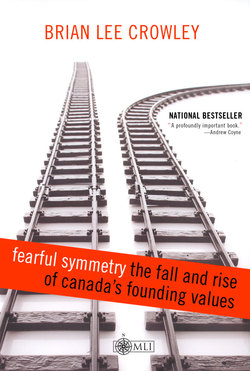Читать книгу Fearful Symmetry - the Fall and Rise of Canada's Founding Values - Brian Lee Crowley - Страница 17
На сайте Литреса книга снята с продажи.
PUPPETRY’s Legacy
ОглавлениеLet’s tie this back to the earlier discussion about how Canada and the United States have diverged over the past few decades. In 1960, Canada and the United States spent very similar shares of their national wealth on government (Canada spent 28.6 per cent of GDP on government, the United States, 28.4 per cent) and had very similar standards of living (a gap of about 8 per cent in favour of the United States). Over the ensuing forty years, spending by government grew by only about 6 percentage points in the United States, but at its peak by over 20 percentage points in Canada,48 although it has since fallen back, in large part in response to the ending of the demographic dividend of the baby boom that occurred in the mid-eighties. Over those decades U.S. per capita income grew by 222 per cent, whereas in Canada it grew by only 126 per cent.49 Even at this relatively low level of size of government, the United States has clearly strayed into the borderlands between a making society and a taking one.50
Canada, by contrast, has shifted decisively to a taking state. If Marxism, feminism, Keynesianism, urbanism, and all the other -isms that so powerfully shaped the Western zeitgeist of this era were the explanation of the growth of the Canadian state in those years, we would expect similar societies to be influenced by them to roughly similar degrees. The changes in Canada over those years are so powerfully different from those in the United States, however, that we need to look elsewhere for the explanation. The rest of the first half of this book lays out in detail the mechanisms by which we have shifted from a making to a taking state.
A sad irony of this evolution toward a taking state, by the way, is that the outcomes in social equity are no better in high-spending societies than lower-spending ones and are frequently worse.51 This underlines the vacuousness of the claim that the growth of the state in Canada has made for a fairer society, a result that might have justified our relative decline in standard of living compared to our southern neighbours. What it does reliably produce, however, is a huge flow of resources through the hands of government, resources available for plundering by those adept at PUPPETRY (rent-seeking). That no doubt helps to explain why much of the spending of governments in Canada is in fact “churning”—money taken from the middle class through taxation and then returned to that same middle class in the form of various “benefits” conferred by politicians seeking to ingratiate themselves with articulate and motivated middle-class voters.52
